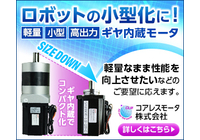What is casting? #casting
Casting is the process of melting metal with heat and pouring it into a mold to create objects.
What is casting? What is foundry? Casting is a processing method in which molten metal is poured into a mold that has a cavity in the same shape as the desired object, and then cooled and solidified. Depending on the type of mold, there are sand molds made by hardening sand, metal molds made by machining metal, as well as resin molds and plaster molds. The mold is referred to as a casting mold, and the products made through casting are called castings. Casting has advantages such as the ability to produce complex-shaped parts in large quantities at low cost, the capability to create hollow sections, and no size limitations, allowing for a wide range of applications and sizes depending on the materials and methods used.
basic information
Castings around us About 65% of the cast iron production and 88% of the die-casting production in Japan are for automotive use, making the automotive industry deeply connected to the casting industry. Various products are also made for ships, railways, airplanes, industrial machinery, and more. In our daily lives, there are home appliances like rice cookers, washing machines, computers, digital cameras, and mobile phones, heating products such as stoves and gas appliances, everyday items like frying pans and pots, leisure products like reels, ski equipment, and golf club heads, as well as construction-related items like door levers, gates, streetlights, manhole covers, bridges, and fences. Statues and bells found in parks and temples are also made from castings, which are widely utilized by changing materials and manufacturing methods according to their applications. The reason castings are so widely used is that they are processed using molten metal, which allows for higher mass production and greater freedom of shape at a lower cost compared to other manufacturing methods like cutting. (Reference: https://shiono-cast.com/castmetal/)
Price range
Delivery Time
Applications/Examples of results
About 65% of the cast iron production and 88% of the die-casting production in Japan are for automotive use, making the automotive industry closely related to the casting industry. Various products such as ships, railways, airplanes, and industrial machinery are also produced.
Detailed information
catalog(1)
Download All CatalogsRecommended products
Distributors
Coreless motors are engaged in the development, manufacturing, and sales of precision small motors, generators, and drivers, offering a wide range of products specialized in lightweight and energy-saving technologies through proprietary technology. 【Product Lineup】 - Coreless Brushless DC Motors - Cored Brushless DC Motors (ODM) - Small Geared Motors (ODM) - General-purpose Geared Motors (some ODM) - Gear-integrated Motors (Winner of the 36th Kanagawa Prefectural Industrial Technology Development Award) - In-wheel Motors for Electric Wheelchairs - Wheel Servo Motors (ODM) - Brushless Motor Drivers (some OEM) - Battery-powered AC Servo Motors (some ODM) - AC Servo Motion Controllers (ODM) - Renewable Energy Generators (some ODM) - Wind Turbines with EAT - IC Fan Motors - Conventional Axial Flow Fan Motors (ODM) - DC Blower Fan Motors (ODM) - Linear Motors













































